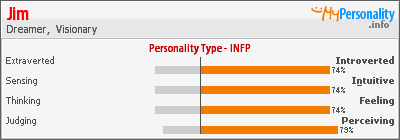Like many Americans, I have been thinking about the Electoral College, those largely anonymous citizens we unintentionally elect, and whom we trust or hope, will choose the president and vice-president we need.
As envisioned by James Madison and the other framers, the election of the college was supposed to begin the presidential election process. That is, the wise Americans chosen as electors were to evaluate the potential presidents and vice-presidents, and then elect the best choices.
After the election of General Washington, I do not know of any time when the system worked that way. From the earliest moments, parties slated candidates for elector and expected their votes in return.
Today most States do not even mention the electors on the ballot. Instead the voters choose a presidential candidate and the party provides names whom they know are reliable. Anonymous persons then vote as they are expected to by the party.
With the horrible Citizens United decision unleashing the spending by “PAC” and other corporate groups, and the advent of very precise polling techniques, this system has devolved into a contest for a very few States. Someone I heard said, “They are not running for president of the US, they are running for president of Ohio.” This so because in many other States the polling shows lopsided pluralities for a candidate. That makes the most cost effective decision identify, "battleground States" and simply ignore the others. Either you have won them, or the other guy has.
The Constitution apportions electors on the basis of the number of Representatives and Senators in each State. So the lowest available number is 3, for those States that have only one Representative, while the highest at the moment is 59, for California which has 57 Representatives and of course, two Senators. This slightly favors small States, as there are some (eg. both Dakotas) that have less population than a single Illinois, or California district contains.
My proposal is simple: change the way we choose electors to match the apportionment logic. That is, instead of my vote for Mr. Obama parsing as it will as a single vote for 20 people I have never heard of, or met, and whom I am not sure I trust, let me vote for three electors. Everyone in America would then be casting a vote for three local people.
The effect would I think be profound. Consider that most of the States with more than 3 electoral votes, even those now safely in a candidate's polling based count, have “swing” districts where no one is quite sure which party will prevail and safe districts for both parties.
Based on Congressional races, Illinois contains 7 safe Democrat seats in the House, and 5 Republican. That means 6 districts can and are being contested in Congressional races. Were the proposed system in effect today, Mr. Romney who currently has no chance in Illinois would be able to contend for eleven of the 20 Illinois electors.
California contains 14 “safe” Republican districts and 8 swing districts. That is 22 of the 59 electors that Governor Romney might win, without expecting to carry the entire State. The candidates could not ignore California where that the situation! Of course, there are States, Texas, Florida, Georgia among them, where the change would benefit the President.
So does this matter? I think it does. Right now, both candidates have ignored the concerns of for instance, ranchers in the West and Midwest. Why not? Mr. Romney owns those States, they are solidly against Mr. Obama, if not all for him. But(!) were President Obama able to contest some of those States' districts, consider cities like Omaha, Nebraska, or Kansas City, Kansas, those concerns would move up on the agenda.
Mr. Obama commands large pluralities in Illinois, California, Michigan and New York while Mr. Romney is similarly situated in Texas, Georgia, and Louisiana. They almost completely ignore the concerns of large cities, unless of course the issues happen to be concerns of Cleveland, Orlando, or Cincinnati. Somehow, I think it likely Latino voters in Los Angelos, or oil industry workers in Houston might have some issues that do not loom large in Cincinnati.
In the system I am suggesting, it might be possible for some districts to elect, “uncommitted” or "third party" electors. Suddenly those districts would be a lot more interesting to the major party candidates.
The change would be fairly simple. Amend the Constitution to say something like:
The several States shall elect 2 electors on a Statewide basis, and one from each Congressional district based on the districts from which Representatives are elected in the same election.
Electors shall be subject to the same residency requirements imposed by their State on Congressional or Senatorial candidates.
The names of the elector candidates shall appear on the ballot. Presidential candidate's names may appear in smaller type, contained in parentheses if the candidate for elector chooses to commit to a candidate.
Congress shall have the authority to implement this Amendment by legislation but not by creating an agency or regulatory process.
Congress and the several States have the authority to limit or forbid contributions to political causes by any corporate entity.
This is the stuff of democracy and representative government. Representatives chosen locally coming together, making the national call. Yes, it is possible that a majority of a States electors might be chosen pledged to a candidate who did not carry the whole State. I think of that as a feature, not a bug, a reason for candidates to remember that there are States not named “Florida” or “Ohio.”
What do you think?





No comments:
Post a Comment